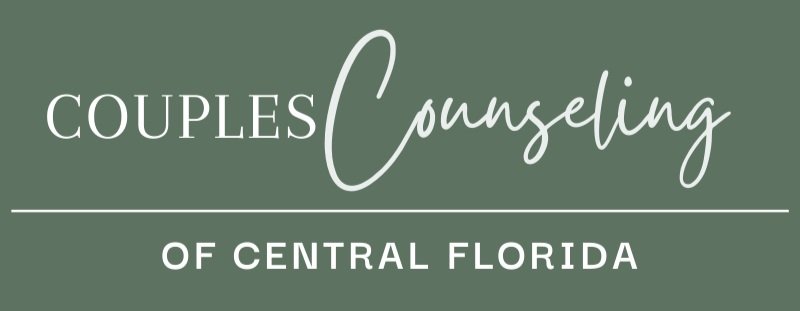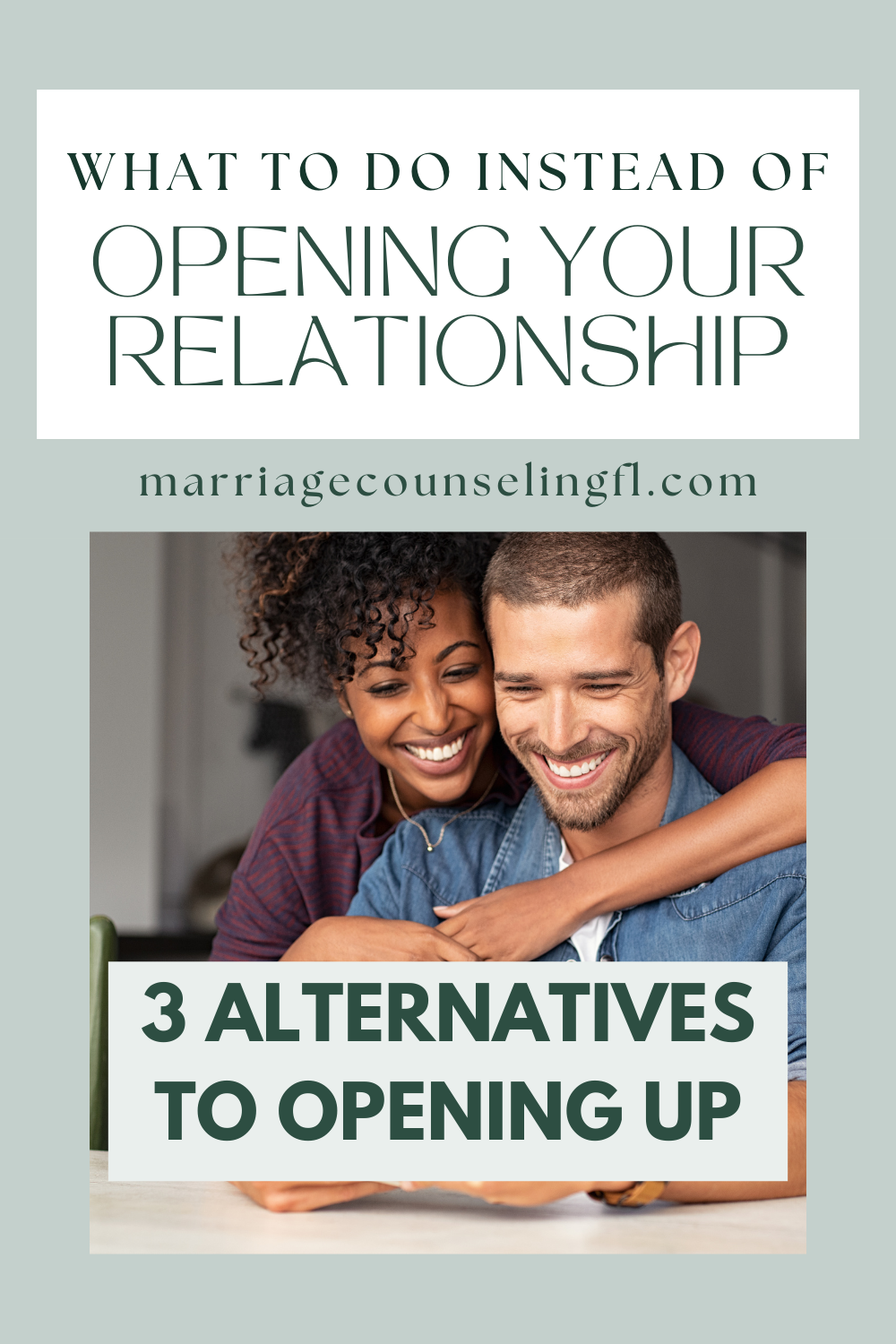My partner asked to open our relationship. How do I know if non-monogamy is right for me?
Has your partner recently approached you with the idea of opening up your relationship? This can be a challenging and confusing time, as you try to navigate your own emotions and understand whether an open relationship is right for you.
But fear not, because in this article, we will explore the important factors to consider when deciding if an open relationship is the right choice for you and your partner.
It’s essential to communicate openly and honestly with your partner about your feelings and concerns.
Understanding their motivations for wanting an open relationship can help you better understand this unfamiliar concept. Additionally, taking the time to reflect on your own desires and boundaries is crucial in making an informed decision.
Another important aspect to consider is jealousy and how you might handle it. Open relationships require a high level of trust and emotional security. It's crucial to have a clear understanding of how you will address jealousy if it arises.
Furthermore, assessing your personal values and beliefs about relationships can also provide valuable insight into whether an open relationship aligns with your long-term goals and happiness.
In this article, we will delve into these considerations and provide you with the tools and information needed to determine if an open relationship is right for you. So, let's get started!
Understanding open relationships
Open relationships, also known as non-monogamous relationships, are a form of consensual non-monogamy where both partners agree to have multiple romantic or sexual relationships outside of their primary partnership. While this concept may be unfamiliar and even intimidating to some, it is important to approach it with an open mind and a willingness to explore new possibilities.
Open relationships can take various forms, such as swinging, polyamory, or simply having casual flings. Each relationship dynamic is unique, and it is crucial to establish clear boundaries and rules that both partners are comfortable with.
Signs that an open relationship may be right for you
Before diving into the world of open relationships, it is essential to assess whether this relationship style aligns with your personal values and desires. Here are some signs that an open relationship may be the right choice for you:
1. Curiosity and openness:
If you find yourself curious about exploring relationships outside of your current partnership and open to the idea of non-monogamy, it may be an indication that an open relationship could work for you.
2. Emotional security:
Open relationships require a high level of emotional security and trust. If you and your partner have a strong foundation of trust and are confident in your ability to communicate openly and honestly, an open relationship may be a viable option.
3. Desire for personal growth:
Open relationships can provide opportunities for personal growth and self-discovery. If you are eager to explore different aspects of your own sexuality and relationships, an open relationship can offer a platform for exploration and growth.
Common myths about open relationships
Open relationships are often surrounded by misconceptions and stereotypes. It is important to separate fact from fiction in order to make an informed decision about whether an open relationship is right for you. Here are some common myths about open relationships:
1. Jealousy is inevitable:
While jealousy can be a natural emotion, it is not inevitable in open relationships. With open and honest communication, trust-building exercises, and a strong emotional connection, jealousy can be effectively managed and minimized.
2. Open relationships are a way to fix a broken relationship:
Opening up a relationship should not be seen as a solution to fix a troubled partnership. It is important to address any underlying issues and ensure that both partners are entering into an open relationship from a place of emotional stability and mutual consent.
3. Open relationships are all about casual sex:
While casual sex can be a part of some open relationships, it is not the sole purpose. Open relationships can involve emotional connections and deep relationships with multiple partners.
Assessing your own boundaries and needs
Before embarking on an open relationship, it is important to take the time to reflect on your own boundaries and needs. What are your emotional limits? What are your expectations for your primary partnership? What are your comfort levels when it comes to physical and emotional intimacy with others?
Understanding your own boundaries and clearly communicating them with your partner is essential to ensure that both of your needs are being met. It is important to remember that boundaries can evolve over time, and ongoing communication is key to maintaining a healthy and fulfilling open relationship.
Communication and trust in open relationships
Effective communication is the cornerstone of any successful relationship, and open relationships are no exception. In order to navigate the complexities of an open relationship, it is crucial to establish open and honest lines of communication with your partner.
Regular check-ins, discussions about boundaries, and addressing any concerns or insecurities that may arise are essential for maintaining trust and emotional security. It is important to remember that open relationships require ongoing communication and negotiation to ensure that both partners feel heard, valued, and secure.
Open up with good communication
Exploring the reasons behind your partner's request
Understanding the motivations behind your partner's request for an open relationship is crucial in making an informed decision. It is important to have open and honest conversations with your partner to gain clarity on their desires, needs, and expectations.
Some common reasons why individuals may seek an open relationship include:
1. Exploration and personal growth: Your partner may be curious about exploring different aspects of their own sexuality and relationships.
2. Variety and novelty: Some individuals may crave variety and novelty in their romantic and sexual experiences, which an open relationship can provide.
3. Avoiding feelings of restriction: Your partner may feel restricted by the traditional notions of monogamy and desire more freedom and autonomy in their relationships.
Discussing and negotiating the terms of an open relationship
Once you have decided to consider an open relationship, it is essential to have open and honest discussions with your partner about the specific terms and boundaries. This includes discussing:
1. Physical and emotional boundaries: What are the limits when it comes to physical intimacy with others? Are emotional connections with other partners allowed?
2. Safe sex practices: Discussing safe sex practices and STI prevention is crucial to ensure the health and well-being of both partners.
3. Communication and check-ins: Establishing a communication plan, including regular check-ins and discussions about any concerns or insecurities that may arise, is essential for maintaining trust and emotional security.
Seeking support and guidance from others in open relationships
Embarking on an open relationship can be a complex and challenging journey. Seeking support and guidance from others who have experience in open relationships can provide valuable insights and advice. This can include joining support groups, attending workshops or seminars, or seeking therapy from professionals who specialize in non-monogamous relationships.
Remember, every relationship dynamic is unique, and what works for one couple may not work for another. It is important to find a support system that understands and respects your choices and can provide guidance based on their own experiences.
Alternatives to opening your relationship
While an open relationship may be the right choice for some, it is important to acknowledge that it may not be the right fit for everyone. If you have explored the factors mentioned above and determined that an open relationship is not for you, there are alternatives to consider:
1. Monogamy: Choosing to remain in a monogamous relationship and working on strengthening the bond between you and your partner.
2. Relationship counseling: Seeking professional guidance through relationship counseling can help address any underlying issues and improve communication and connection within your partnership.
3. Reevaluating your needs: Taking the time to reassess your own needs and desires, both in terms of your relationship and personal growth.
Conclusion: Making an informed decision about open relationships
Deciding whether an open relationship is right for you and your partner is a deeply personal choice. It requires open and honest communication, a willingness to explore new possibilities, and a thorough understanding of your own boundaries and needs.
By understanding the dynamics of open relationships, communicating effectively with your partner, and seeking support and guidance from others, you can make an informed decision about whether an open relationship aligns with your long-term goals and happiness.
Remember, there is no one-size-fits-all approach to relationships. It is essential to prioritize your own well-being and happiness above societal expectations or norms. Ultimately, the key to a successful relationship, whether open or monogamous, lies in mutual respect, trust, and open communication.
Need a professional to help you open with ease?



